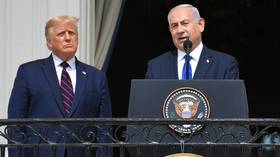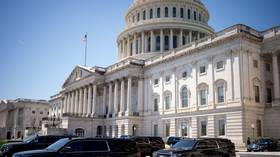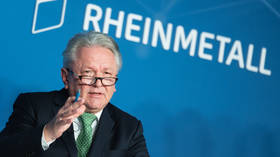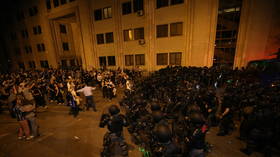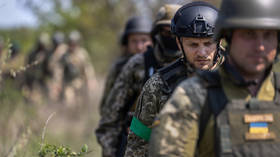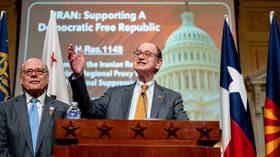‘Despite rumors of a coup, another Orange revolution in Ukraine is unlikely'
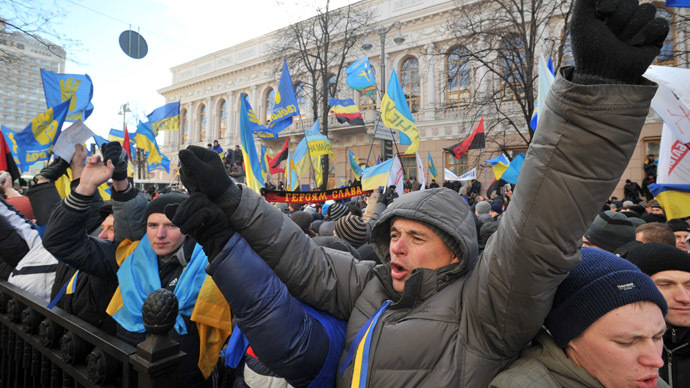
Pro-western forces in Ukraine will find it hard to provoke a new revolution, particularly as a potential EU trade agreement would not affect the constitution, John Laughland, director of studies at the Institute of Democracy and Cooperation, told RT.
RT: The Ukrainian parliament is right now debating a government no-confidence vote. Would you bet on the prime minister and his Cabinet in this situation?
John Laughland: I probably would. I think the rumors of a coup are to be taken with some seriousness but I would be surprised if the events of 2004, the Orange Revolution, could be repeated. I think Hegel said, or was it Marx,“History repeats itself first as tragedy and then as farce." I think it will be difficult for the pro-western forces in Ukraine to pull off the same trick twice, particularly since clearly this decision about the trade agreement with Europe is only a decision about the trade agreement. The issue is not something constitutional, like an election, as it was nearly 10 years ago.
RT:Some senior EU politicians rushed to Kiev to express their support for the opposition. What's your take on this – is such interference in the country's internal affairs justified?
JL: Absolutely not. It’s absolutely disgraceful for European politicians to travel this way as they did 10 years ago, when members of the European Parliament, other people from the EU, including particularly Polish representatives, played a very important role in disrupting the electoral process back at the time of the Orange Revolution. What is very important for people to understand is that the European leaders, the European elite genuinely consider themselves to be more civilized and more politically advanced than anywhere else in the world. In this respect they are often compared to early Bolsheviks. They really think they are in the avant-garde of history and they think that any country such as Ukraine and even Russia, which is not interested in following their particular political and economic model, is backward, reactionary and dangerous, and that’s why they are inspired with an almost revolutionary zeal. The EU report used the word “revolution” and it was bandied around again. They are really convinced that they are in the avant-garde of history and that what gives them a dangerous drive.
RT:In case the government does step down, do you think that will be enough to soothe the opposition and quell the protests or on the contrary, inspire them to demand more changes?
JL: I’m not convinced that the government will fall, though I’m in a long way away from the events in Ukraine. I think, unfortunately, that as long as Europe continues with its geopolitical project, which is to constitute itself as the center of gravity in Europe and to draw non-European countries into its orbit, to extend its sphere of influence as far as possible into Eastern Europe, and deep, of course, into historic Russia. As long as Europe continues this geopolitical program, these problems and tensions will continue. And of course they will particularly continue in Ukraine. Ukraine is the biggest prize, but it is also the most difficult prize. Other smaller countries like Georgia are fairly easy to take over. So as long as Europe continues with its march to the East, I think these tensions will continue. On the other hand, it’s not clear for how long Europe will be able to continue to exercise this fascination as it undoubtedly does in certain parts of Ukraine because everybody knows that European model itself is in deep crisis. Everybody knows that in southern Europe the euro has inflicted terrible economic damage, youth unemployment is over 50 percent in Spain, etc. Europe will cease to have attraction increasingly, at least for people who look at things factually rather than with emotions, as many people are doing.
RT:One of the most vocal supporters of the protests we've heard from is the Polish opposition leader Yaroslaw Kaczinsky. He is known as a staunch critic of the EU. Why would he support Ukraine's integration deal with the very bloc that he's so against?
JL: He is a staunch critic, as you said. He was a bit like the British Conservative Party, who made euro-skeptic noises, as the Kaczinski brothers did when they were in power, but in fact never doing anything against Europe. On the contrary, they've always been fervent supporters of Polish accession. And they above all see this integration of Ukraine into the European Union as a geopolitical victory for Poland. It’s very important to emphasize the role of Poles specifically in the process with Ukraine. Poland has always regarded Ukraine as its backyard, it has neo-imperialist designs on Ukraine, it wants Ukraine to come mainly into its orbit, not even a European orbit. And that’s why Polish leaders, former President Kwaśniewski and others have taken such a role in this. So there is no incompatibility between Kaczinsky’s professed euro-skepticism and his deep desire to affect this radical geopolitical change, which would be represented by Ukrainian accession to this agreement.
The statements, views and opinions expressed in this column are solely those of the author and do not necessarily represent those of RT.
The statements, views and opinions expressed in this column are solely those of the author and do not necessarily represent those of RT.



